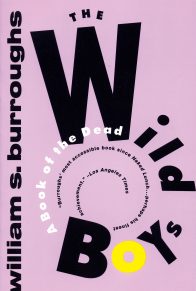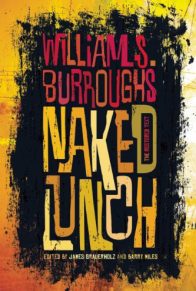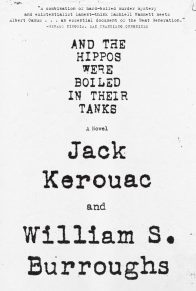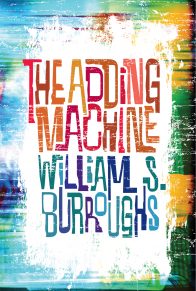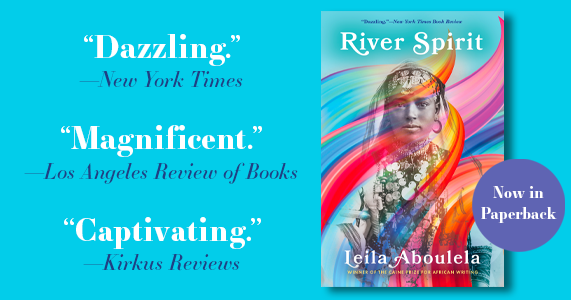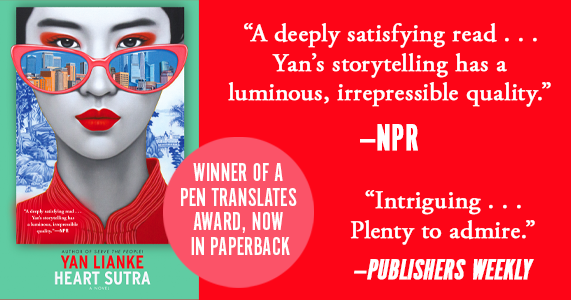November 10, Calico was killed at 19th and Learnard. I heard about it the 12th from Jos’. Tom had seen the cat by side of the road.
In the empty spaces where the cat was, that hurt physically. Cat is part of me. Mornings since, I break into uncontrollable sobbing and crying when I remember [where] she used to be–sit–move, etc. No question of histrionics. It just happens.
Oh, it was also a cat. I wasn’t sure it could find its way.
The heart doc says I am leaking.
Well, “Qui vivra verra.”
November 16, 1996
Coming up narrow tenement stairs. Met two people coming down at landing, said: “Hello.”
At top of stairs was a cubicle room with old sewing machine and other odds and ends, and there was an affectionate cat, whose head seemed removable. This room was open at top, three floors up.
Other people on roof said something about “Absolutely,” referring to the cats.
Nov 17 or 18, 1996. Monday
Project: overheard, casual walking down 2nd Ave NYC. Two black guys pass, talking. One, in a white sweatshirt, says: “Counselors and all that shit.”
Obviously talking about the Methadone program. How some black voices can cut right to the bone through all the bullshit.
‘very dangerous.”
William Bennett, late–I hope, certainly former–Drug Czar under Reagan and Bush. He continues: “We must target the “casual user.””
“Which is it this time, Holmes? Cocaine or morphine?”
“Both, Watson, a speedball.”
Casual users who hold jobs and manage their lives successfully (like me) send a message that people can use illegal drugs and still function adequately.
‘very dangerous.”
Dangerous to whom exactly, Mr. Bennett? Very dangerous to liars like Bennett and Anslinger and the whole ill-intentioned and downright evil cluster of fiends born from the Harrison Narcotics Act. A vast hierarchy of evil, from street narcs working their snitches to kids turning in their parents.
“The War Against Drugs has united us as a nation.”
Bush or Reagan–take your pick.
A nation of what? Stool pigeons? Informers?
I like the Russian word for “informer”: stukach. A word to be spit.
Our pioneer ancestors would puke in their graves.
‘very dangerous.”
What is this asshole Bennett, who smokes two packs of cancer a day, really saying? To be a good American you have to be a goddamn liar? Of course people live to ripe and productive old age on junk. Look at Herbert Huncke, 81; De Quincy, 74; George Crabbe, English poet, 78; and yours truly, [82] and still kicking.
Turn-of-the-century physician who treated a number of morphine addicts said: “The general health of the morphine addict is excellent.”
‘very dangerous.”
Nixon said that Tim Leary, old friend of mine, was “the most dangerous man in America.” Dangerous to whom, exactly? To a blueprint for an international police state under cover of a total drug war.
A bit late to hit the barricades and paving stones. Maybe two hundred years ago–already arresting ‘drug dealers’ in other countries. (Suppose some greasy spic narcs should have dragged Reagan out of the White House for undisclosed offenses?)
And an old queen is hauled before a Dutch court for ‘minor incidents’ in the Philippines.
‘very dangerous.”
To queens who batten on these Moors in Morocco and elsewhere.
“This international parasitism is a very bad thing.”
Dr. John Yerbury Dent was the least paranoid of men, and he had the full warmth and goodwill, the best the English can offer.
He said: “I think what the American narcotics people are doing is bad.”
He didn’t want to use the word: Evil. But I do. Evil for anything Homo Sap may have created or may hope to create. I mean Evil, Evil, Evil–implemented by corrupt, evil, sadistic individuals.
Always accuse others of what you (the liar) are doing. Not to go into the media of it, that rancid old cenote, bubbling up belches of coal gas from rotten lungs and guts. Nothing good is bubbling up here.
November 19, 1996. Tuesday
Lake or river with patches of algae on top. I swim across to a wooden dock avoiding the algae.
Another lake with clear water. I can see down to clusters of goldfish 20 feet [below], and between.
Walking (wrong number, Harris Construction) back to the Bunker. Tried a shortcut through a Turkish Bath that opens on a closet, that opens on the hall at 222 Bowery. Decide not to take the Turkish shortcut.
“I got twenty-three dope fiends in here now.”
(Harried attendant at the Lexington Narc hospital.)
In a dream last night (Nov. 18, Monday) I was a cop. I said:
“I got a gun and I got a baton. I need handcuffs and a two-way radio.”
Standing at counter waiting for my radio and handcuffs, pepper gas and other good things.
‘very dangerous’ for Bennett and Co., that any man could feel a basic, deep, real emotion like grief, heartbreak, the joy that comes from danger and death.
“Is it not fine to dance and sing
While the bells of death do ring?”
‘very dangerous’
“Bring out your dead.”
The heart of the matter.
Desertion: Waiting day after day, tomorrow and tomorrow, hope always dimmer, further away.
“I was waiting there.”
Let he who created a world of sin and stones cast the first stone.
Nothing under the mask but Death.
Bennett & Co deplore relative ethics. They want absolute. All right, let’s get absolute:
What they are doing is WRONG, EVIL, by any human standards.
Tomorrow, November 20, 1996
It was a Wednesday and Victor Bockris will give me a medal for longevity.
You just live long enough and you will become the grand old man of letters a bit tired with his very tired old jokes. Some bordering on the risqu”.
(The grand old man of letters will accrete around you with cashmere shawls.)
The man in a cheap hotel makes it with lady in next room. Next day as they meet on a landing, she says: “Bonjour, Monsieur,” wiggling her little finger suggestively. He responds by taking off his hat and placing the top side over his crotch: “Bonjour, Madame!”
Well, I guess my Pullman car joke is a bit heavy for a mixed audience. Or the one about animals checking their equipment and some character has the elephant’s [trunk]. Don’t clearly see the point in that one.
Any case, back at a party in the 30s and there was someone there who could–and unfortunately did–imitate Roosevelt:
‘my friends, I hate war. Eleanor hates war. And I hate Eleanor.”
Heh, heh. It was a long time ago, and it wasn’t funny even then.
And what has become of the New Yorker cartoons? They are not funny or even comprehensible any more. Where are the classic cartoons of Charles Addams and Peter Arno?
Yes, where are the snows of yesteryear. And the speedballs I useta know?
Well, I guess it’s time for my Ovaltine and a long good night.
“Well just who are you?”
“Come in please.”
The name is Sam Beckett, of course.
So back to basics–anything etc. The simple concept of a ‘decent person.” You can see it is the best of the English. It is self-evident.
“You I cannot help but see….”
Old props falling from East St. Louis, to Shanghai to Panama, NYC, London, through London–come through, London:
“Loud and clear.”
“How can I know?”
One outpost of joy from within is a deadly threat to the invading, invaders, who are?
Are, our, the voices, creaks–they must eliminate.
This “just want to live over here and do our thing” is absolutely intolerable to the invaders.
I can see their radar screen picking up Jos’ and me coming back from the Methadone Clinic. Funny thing, that cop never looked at me. Never asked Jos’ what in hell Burroughs Communications was? And I would have to stand forth and say:
“I am William Burroughs. I communicate.”
How often on undercover [assignment] on this planet is one tempted to use ‘deadly Force.”
Get a hold on yourself, young man, and lie straight. What they call truth here is lie there–their lie.
“Our sacred truth. We’ll die for it if given the chance.”
Sorry, they aren’t fitted even for the hawg-pen of Creation.
Wednesday November 20, 1996.
Dream of sex that cannot be realized for some reason. No connection with waking consciousness.
“That old feeling.” Complete with self-pity.
“That old feeling is still in my leaking heart.”
Hmm. Who was it. Composite, I guess.
Every time I put out three cat pans instead of four, the death of Calico hits again–or I see the place [where] she used to eat, beside the sink. All the empty places. The memory of what has been and never more will be. Killed by a car, she left with me all the places she used to be and never more would be.
If I thought the driver did it deliberately–if then I could find him–I have a catalogue here advertising a vial of Road Kill. A touch in his ear, on the porch, sent in envelopes under his door.
Well, can it. This is going nowhere, like the man whose child suffocated in an icebox HE himself had left out, chopping the box to pieces with an axe.
You don’t get off that easy, pal. Who left the icebox out there?
Film–
A series of short takes–headlines–”Flight 800 lost over Atlantic.”
Switch to airport: “Flight 800 now boarding at Gate 23.”
Precognitive fear–now we come to the mushroom cloud that darkened the earth–Hiroshima.
Paul Bowles’s dream: “Off the track! Off the track!”
Psychics, experts, scientists say the Earth will go out of orbit in the year 2000. Idiocy, War on Drugs–fear hanging over the planet. “The Man.” “Yellow Peril” –etc.
Short, short cuts.
Plane–Pop singer takes shot in head. Shots in other times and places. (We see blood blossom in a million syringes, and hit home.)
Cuts to Doctor Kent–Painless Cure.
‘very dangerous.”
The sickness of the world is junk–fear of, attempts to control and to spread, for excuse to control–
It’s all so obvious–intelligent opposition from the Drug Policy Letter.
On plane–sleeping passengers–dream flashes.
‘my creeping opponents say that I am trading on my reputation as a writer to gain notice as a painter. Of course I am. In this life, one is well advised to play the cards one has for all they are worth.
“If one is lucky enough to be born with a beautiful face and the corresponding physical attributes, instead of moaning “Oh people only want me for my face,” play your face card. Youth plays the cards of youth and vitality–in youth, play your youth cards. In old age, claim the privileges of age, and get your snout in the public trough before it dries up.
“I want to thank all those who have made this show possible and contributed their expertise as performers, as curators and organizers. And in particular Robert Sobieszek, for a magnificent job [of] selecting and presenting the material at the L.A. County Museum of Art, the same show that is here now.
“And I thank sincerely those who have come here to perform this evening, and all of you who are here tonight.”
November 29, 1996. Friday
‘so laughable,” she says.
It’s the banishing ritual–ho ho ho, hum hum hum.
“Whatever comes .. . !”
Herr Professor Federn. Sure, it worked sometimes, back in the age of hysteria, dissociation, multiple personalities. Don’t work now–like penicillin–
See ‘mental illness’ as a vast organism dedicated to fuck up the Sapiens Project. How can an illness be ‘mental”? What [does] it feed on?
So for ‘mental” in the books, substitute ‘don’t know” or ‘soul sickness.”
So? I wonder.
Back at Chestnut Lodge. If I had stayed? Where would I be now?
Qui vivra verra.
It was not to be.
I like a weapon close to me
Because I am so cowardly
I have seen Fear
and Fear has made me free
Who lives will see
To look Death in the eye
With no Kamikaze lie
Wrap no flag around me
Who lives will see.
Man can be alone with Death
Will receive a second breath.
Caf” Lipp–hiking thru tall grass. I had forgotten my gun and [holster]. I was with someone indistinct–rummaging thru drawers, found only the .25. A deep wood drawer, completely empty.
“A Nothing Man” at the 1962 Writers Conference in Edinburgh. Put me on the literary map, thanks in part to Mary McCarthy, my spiritual sister–more than that–
What a job [she did] on the worst of the male sex: “The Young Man” –
A hospital for minor surgery. Hears screams in the night.
“The cancer patient at last!”
And he sang out lustily:
“Cast a cold eye on life, a cold eye on death–Horseman, pass by!”
No wonder for no apparent medical reason the surgeon could ascertain the young man’s heart just stopped in mid-surgery.
I think for no reason to continue his lusty singing and to debase the human image by a hundred cuts. So horrible beyond realization–a shattered, falsified picture of a non-being. What force could so deform a man? Sucking screams off cancer patients, not even.
To nurse: “I heard screams last night, was that the cancer case?”
Nurse: “You’ll never hear a sound from Mr. Miller, must have been in maternity.”
“Oh.”
The young man deflates like a pale green balloon.
“Oh, oh, oh.”
“Well, it’s time for your pre-operative medication.”
“Young man in a sudden panic.
“I, uh, well…”
Darkness creeps up from the front of his bed.
“I am the Captain of my soul,” he mutters, as the stretcher slides down the hall, into an elevator–to the O.R.
In Tangier, my typewriter in hock to buy Eukodol, a chemical derivative of codeine, many times stronger. Dihydro-oxy-codeine–finally outlawed, owing to side effect of euphoria, hits like a speedball, Kid.
Guess I used all of it up in Tangier–but it’s still out there in Quevedo, Ecuador, on a dusty back shelf, covered with mildew on a South Sea island–
‘shoot it in the main line, Kid. Hits like a speedball.”
Maybe up in some Swede town under the Northern Lights–Christmas story.
“Any more of that?”
“Well yes–a consignment of twenty boxes–twenty in each box. Let you have it all for, well, say $100 U.S. dollars.”
‘done.”
Can we, the males, live without the other half? Female?
And O.H. must always talk. O.H. is talk, was the original invasion–was “word,” of course, so cut word out in slow withdrawal.
It’s going to hurt and hurt bad.
Saturday November 30, 1996.
I said: “L. Ron Hubbard needs a knife in his gizzard.”
And I demonstrate with an assassin knife from Alamut how one strikes upward under the left rib cage to the heart. And I threw another knife into what looked like tinfoil.
Unpleasant feel of no meaning to me. Just floating by.
So to go on from here.
What is the “whatever comes?”
As Federn used to say in his study, [middle]-European apartment–rather like Schlumberger’s in Paris–
Steak and bread and salad–red wine–talking to Allen Ginsberg about some English [person], says:
“A blues singer, a blues shouter. Everybody going to see my black bottom. He really gives out.”
What, exactly?
Perhaps somewhere out there–Quevedo, Ecuador, uno de puro, Peru… on the back shelf a dusty box of ampules, Eukodol, 15 mg per ampule.
‘shoot it in the main line, Kid, hits like a speedball.”
Who. When where? Why?
Short stories?
Like the feeling there is some final resolution ahead–has to be?
“Qui”n es?” Last words of Billy the Kid. Garrett was very close, five feet, maybe. Couldn’t miss.
The Secret Army?
I won’t say “we lost,” because some of what’s left of us is still in there.
War stories–the room on top of the Lottery Bldg. in Tangier. John Hopkins came in and said from the balcony: “Looks like a naval battle.”
(It had been a desperate engagement. Day after day the war.)
Heavy fog with holes in it, like artillery fire.
So what we got now?
Why not realize their pretext, and hit the Evil of the War Against Drugs. The sums involved in the money laundries are trillions of dollars, while people caught with an ounce of morphine are hanged.
Yes, the whole pestilent horde born from the Harrison Narc. Act is Evil with regard [to] anything Homo Sap can or will ever create–with regard [to] the space frontier. In a malignant intervention of Alien (to resident mammals) influence. And as usual Homo Sap laps it up as the right way to go.
“We’ll build more prisons,” Bush snarled.
“We already got one million inside.”
(ref. The Job)






